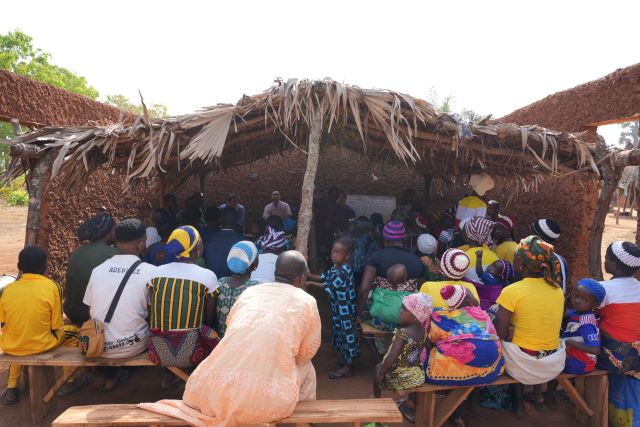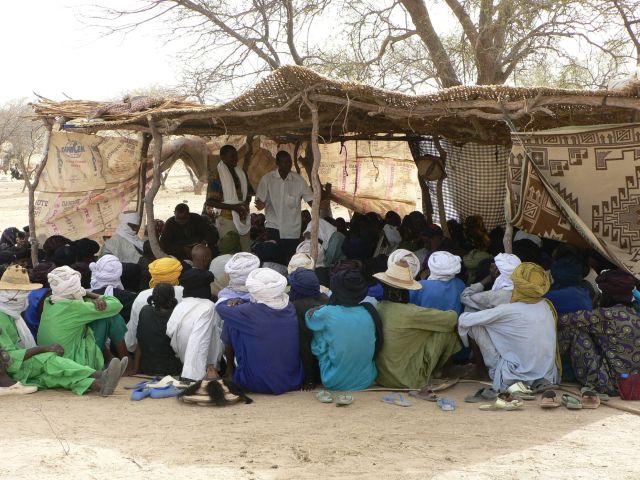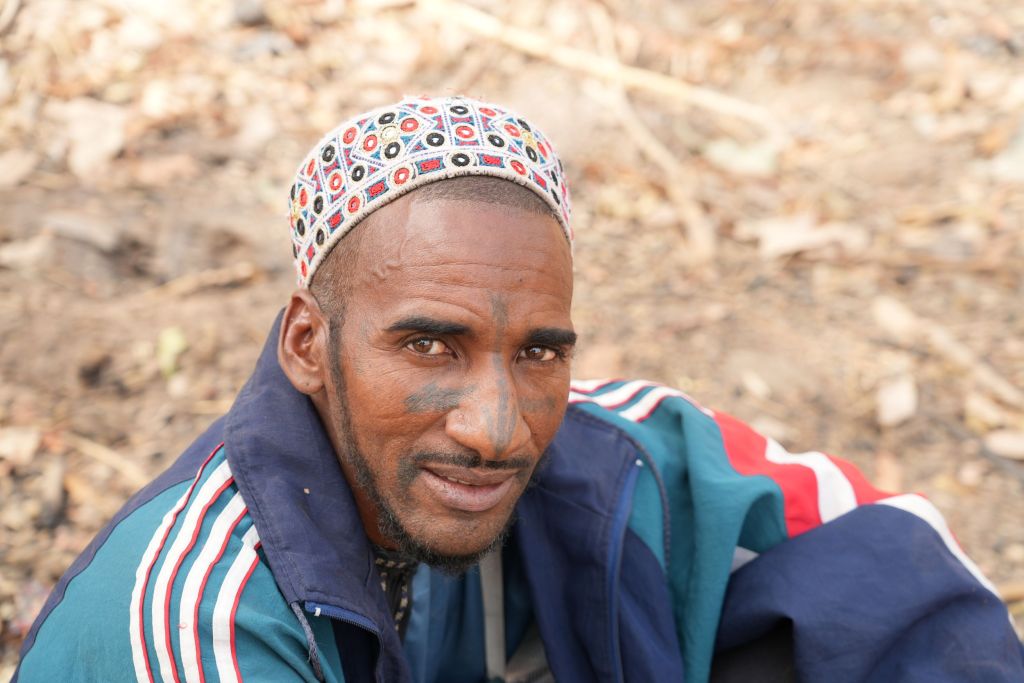By Jon Banke
“God loved me so much, He brought me two famines. Because this drove us towards the missionaries for food, where we could hear the Gospel, and so that salvation could come to my people.”
These words of Isaaka, one of the first believers in a remote bush camp of nomadic Fulani in a desert area of West Africa, were both astonishing and humbling. As I sat at his feet, he on a simple chair and me on a rough, straw mat stretched across the sandy ground, he gave me the full story.

Fulani community listening to the Gospel
God began working within Isaaka’s community in 1974. A severe famine across much of Africa had wiped out the herds of countless nomads. It drove several men from Isaaka’s community to a city in search of food. While there, another man from Isaaka’s family, Nuhu, heard the message of salvation in a local hospital. Returning home, Nuhu wanted to follow Christ, but pressure from his family cooled his fire.
Fast-forward to 1984, which was when “God brought another famine”. Again, men from the community went to the city - and again God went ahead of them. Two other men, Haruuna and Deri, met a mission worker who spoke their minority language. On that day, they heard the good news for the first time and chose to follow Jesus Christ.
Awaiting the return of Haruuna and Deri, Nuhu sat under a tree listening to a pair of doves chattering together. Deeply rooted in traditional beliefs, his clan believed that natural happenings occasionally carry a particular message. On this day, Nuhu felt that the birds’ babble indicated that he would soon receive good news.
Within a few hours, Haruuna and Deri had returned home. When Nuhu asked why they had not performed the ritual Muslim prayers, they told him they had heard about the way of Jesus in the city and had chosen to follow it. This was indeed good news to Nuhu and, 10 years after first hearing the gospel, he was able to follow Jesus with these two family members!
Such are the origins of a small community of Christian nomadic Fulani in this out-of-the-way blip, not found on any map. As I sat with Isaaka, I learned that the tiny spark in 1974, which ignited with seven men in 1984, has now caught fire with more than 200 households in the vicinity of that first bush camp! That’s over 1,000 believers.

Gospel preaching to Fulani community in West Africa
God continues to choose key leaders from among the Fulani. A handful of highly mature and wise leaders are scattered across the region. And the Fulani Church continues to grow in its capacity and ability to take the Gospel to other Fulani across a vast swath of land.
God’s ways are sovereign. The flicker that flashed in the communities of Isaaka and other groups has grown as these communities of Fulani live out their faith before others. And, just one among many, the small church planted through adversity over 50 years ago is strategically located to spread His love through this region like a wildfire.



